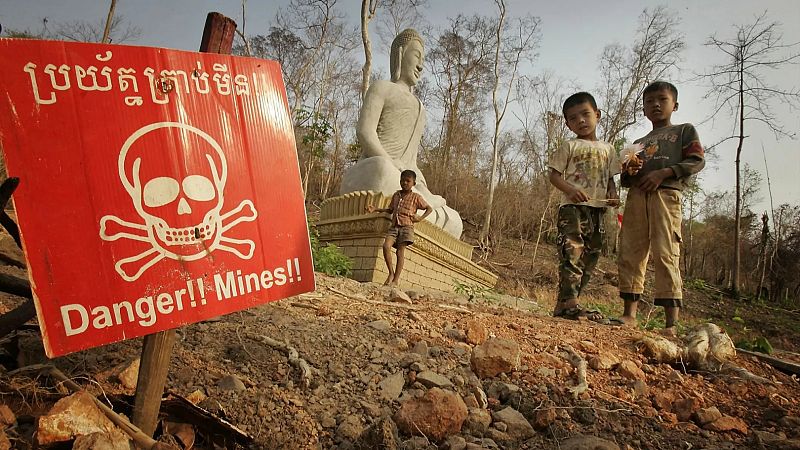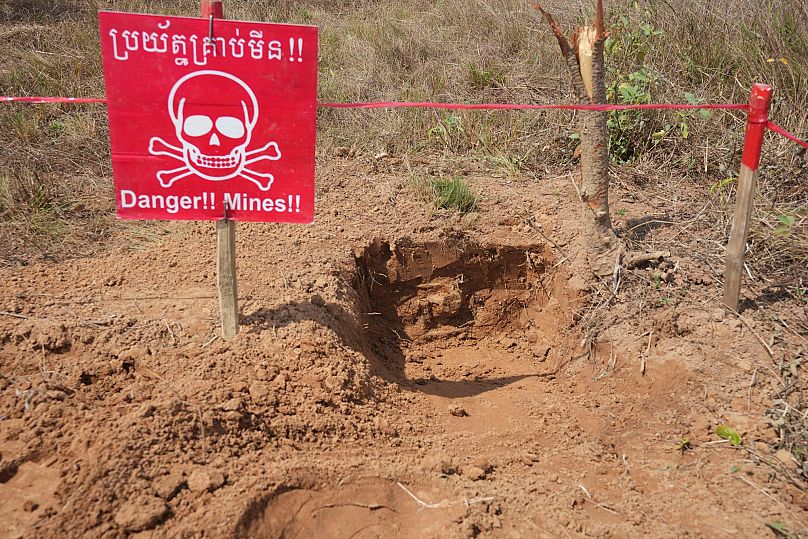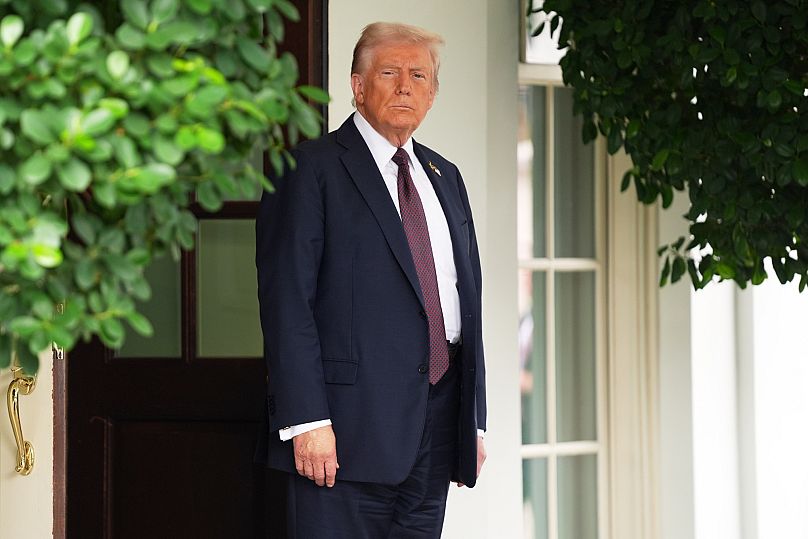US renews funding for demining operations in Cambodia despite widespread foreign aid cuts

The United States will grant $675,000 (€575,619) for crucial demining programmes in Cambodia, the US embassy said on Monday, after a freeze on foreign assistance raised doubts about future support for mine clearance in the Southeast Asian country.
An estimated 4 million to 6 million land mines and other unexploded munitions littered Cambodia’s countryside during decades of conflict between 1970 and 1998.
Since the end of the fighting, nearly 20,000 people have been killed and about 45,000 injured by leftover war explosives, even though Cambodia has a worldwide reputation for an effective demining program.
Washington has contributed over $220 million (€187 million) since 1993 for demining operations and has partnered with the Norwegian People’s Aid and the Cambodian Mine Action Centre, the US embassy said.
Heng Ratana, director-general of the Cambodian Mine Action Centre, said that soon after February's aid freeze announcement by US President Donald Trump, Washington had issued a waiver allowing $6.36 million (€5.43 milion) in scheduled aid to continue until November 2025.
He said the new funding was for mine clearing operations from November through April 2026.
He expressed hope that a recent congressional visit and the signing of the funding agreement demonstrated Washington’s commitment to continued assistance for demining.
Cambodian deminers are among the world’s most experienced and several thousand have been sent in the past decade under UN auspices to work in Africa and the Middle East.
However, neighbouring Thailand has accused Cambodia of planting new antipersonnel mines along their shared border as part of a territorial dispute that led to five days of armed clashes in late July.
Cambodia has denied the allegations.
Cambodia's ally China, which has been vying for influence in Southeast Asia, has also touted its own contributions to demining programmes in Cambodia.
The Trump administration's decision earlier this year to close the US Agency for International Development (USAID) drew widespread criticism at home and abroad.
The United States is by far the world's largest source of foreign assistance, although several European countries allocate a much bigger share of their budgets to aid.
USAID funded projects in around 120 countries aimed at fighting epidemics, educating children, providing clean water and supporting other areas of development.
Today



